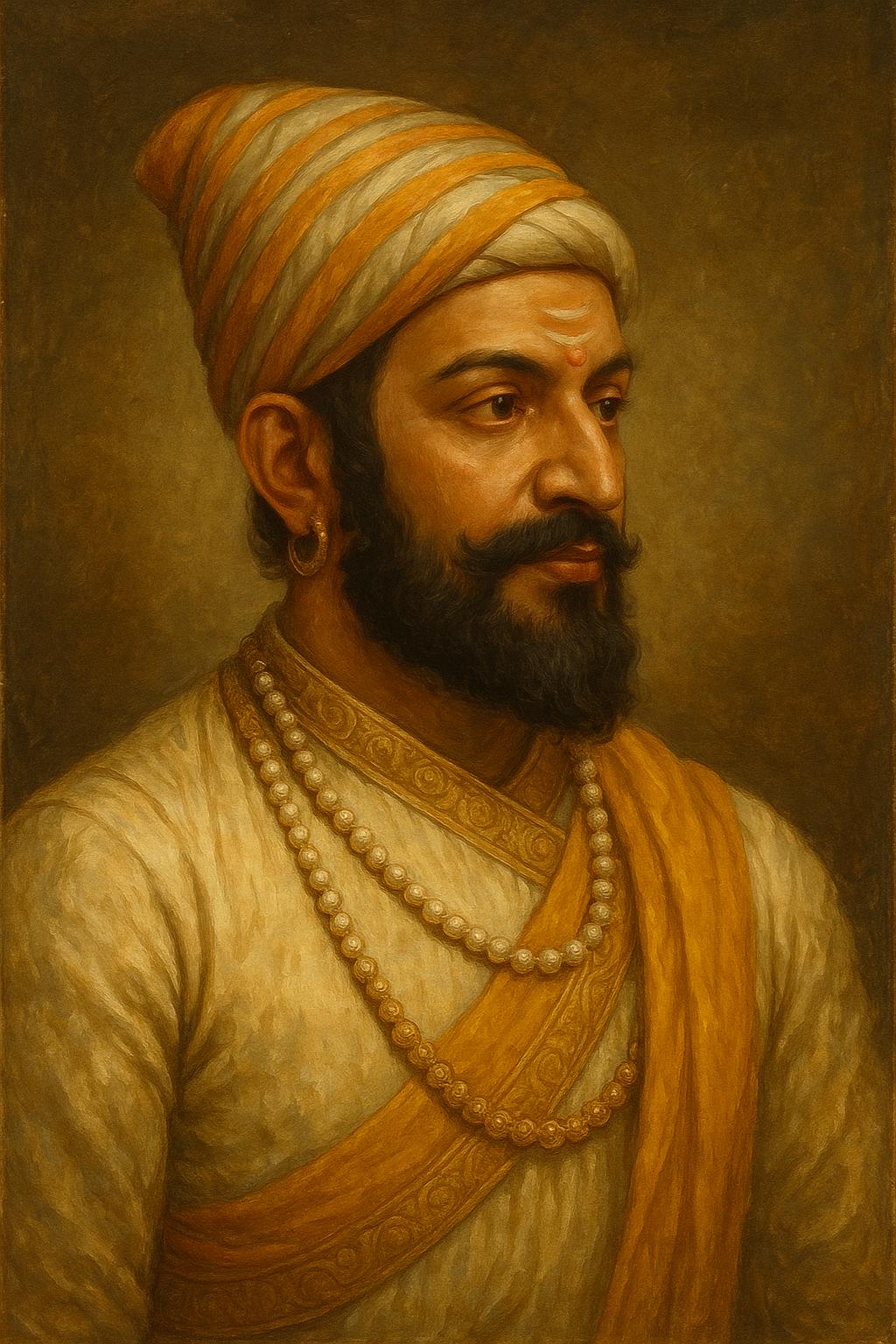




Early Life and Childhood of Shivaji Maharaj
Shivaji was a legendary Indian king, military leader, and the founder of the Maratha Empire in the 17th century. Known for his brilliant strategies, administrative reforms, and commitment to social justice, Shivaji Maharaj shaped the course of Indian history by establishing a powerful empire and resisting Mughal domination. His life and achievements continue to inspire students and leaders across India.
In this article, we explore his early life, career milestones, and lasting legacy.

Early Life of Shivaji
Shivaji was born around 1630 in the Shivneri Fort, situated in the Deccan region of modern-day Maharashtra, India. His parents were Shahaji Bhosale, a respected Maratha general, and Jijabai, who played a crucial role in shaping Shivaji’s values and character.
Growing up during a period of foreign rule, Shivaji was influenced by stories of valor and a deep commitment to Hindu culture and justice. His mother's guidance and his exposure to local traditions fuelled his dream to establish self-rule for his people.
Career and Achievements
Shivaji Maharaj gained recognition through the following key contributions:
- Founded the Maratha Empire, becoming its first Chhatrapati (sovereign king) in 1674
- Led successful campaigns against the Bijapur Sultanate and the Mughal Empire
- Developed a progressive administration and practiced religious tolerance
- Reformed military tactics, pioneered guerrilla warfare, and constructed forts
- Laid the foundation for self-governance and promoted Marathi culture
Key Events in Shivaji’s Life
| Year | Event | Significance |
|---|---|---|
| 1630 | Birth at Shivneri Fort | Origin of the Maratha leader |
| 1655 | Began seizing Bijapur outposts | Marked the start of his military career |
| 1674 | Coronation as Chhatrapati | Established the Maratha Empire |
| 1680 | Death at Raigad Fort | Left an enduring legacy in India |
Personal Life and Public Image
Shivaji Maharaj was admired for his courage, strategic mind, and respect for all communities. He was married several times and had two sons, Sambhaji and Rajaram. While a committed Hindu, he was notable for respecting and protecting people of all religions, employing Muslims and others in key roles.
His devotion to his mother Jijabai, and his sense of duty toward his subjects, earned him immense respect and a special place in popular culture and Indian history.
Legacy of Shivaji
Shivaji continues to influence others through:
- The promotion of regional pride and cultural identity in Maharashtra and beyond
- Inspirational governance models and advocacy for social justice
- Recognition as a national hero in textbooks, films, and commemorative events
This biography highlighted the journey and influence of Shivaji. His ideas and actions remain deeply relevant to modern discussions of leadership, resistance, and nation-building.
Learn more about historical and modern-day personalities on Vedantu’s platform.
- Discover more about another legendary Indian emperor in the Akbar Biography.
- For a comparative perspective, read about Chandragupta Maurya, an ancient empire builder.
- Explore the story of Bhagat Singh for a glimpse into India's modern revolutionary spirit.
- Learn about inspirational leadership through the Mahatma Gandhi Biography.
- Find out more about iconic women in Indian history in the Rani Laxmibai Biography.
- Discover the political wisdom of the ancient strategist in the Chanakya Biography.
- For teachings on values and spirituality, explore the Swami Vivekananda Biography.
- To delve into the life of a modern nation-builder, visit the Jawaharlal Nehru Biography.
- Return to the detailed page: Shivaji.
FAQs on Who Was Shivaji Maharaj? Life, History & Achievements
1. Who is Shivaji Maharaj?
2. Why is Shivaji Maharaj famous?
3. What did Shivaji Maharaj do?
4. How many wives did Shivaji Maharaj have?
5. What is Shivaji Maharaj’s history?
6. Who wrote the biography of Shivaji Maharaj?
7. What was Shivaji’s contribution to Indian history?
8. When and where was Shivaji Maharaj born?
9. What were Shivaji Maharaj's military strategies?
10. What is the significance of Shivaji's coronation in 1674?
11. How did Shivaji Maharaj's reign impact modern India?
12. When did Shivaji Maharaj die?





















